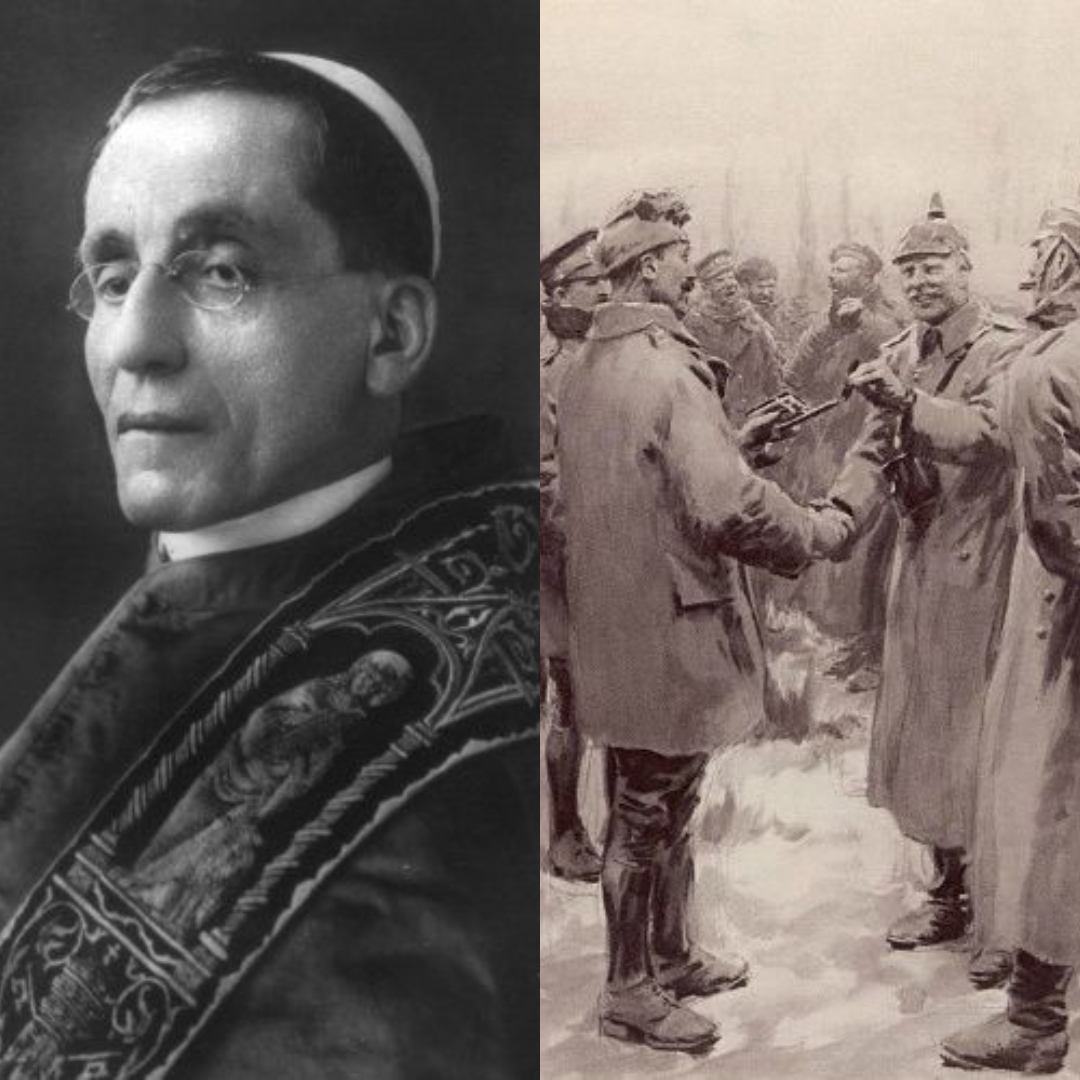It’s a story of hope for modern man; a glimmer of light amid the darkness of the 20th century that suggests perhaps we won’t end up destroying ourselves after all.
We're talking about the famous Christmas Truce of 1914. You (hopefully) know the basic story:
In World War I, German and British soldiers throughout Europe called unofficial ceasefires on Christmas Eve and Christmas Day, ventured into “no-man’s land” between the sides, and enjoyed conversation, caroling, and even games of football.
But did you know about the part the pope played in it?

World War I broke out in July of Pius. Pope Saint Pius X, the pope at the time, was sick and dying and unable to adequately respond. He died in August, and by September, a new pope was elected–Benedict XV.
Right away, Benedict made trying to bring peace to Europe one of the main tasks of his pontificate. He famously called the war “the suicide of civilized Europe.”
In early December, he suggested that all warring parties agree to at least a cease-fire on Christmas Day of that year.
In the least, the cease-fire would allow soldiers on all sides to keep the holy day. And perhaps the respite would make everyone reevaluate why they were fighting the war in the first place.
But the real hope was that the temporary ceasefire would give the warring parties a chance to put together a permanent truce to end the war for good.
He implored “that the guns may fall silent at least upon the night the angels sang.”
Unfortunately, his proposal was officially rebuffed by leaders on all sides. But then, when Christmas came, truces sprang up unofficially throughout the continent anyway.
What caused the truces?
It’s hard to know exactly, particularly since they were apparently uncoordinated and spontaneous. But it’s hard to think the Pope’s courageous pleas for peace didn’t have some effect on what ended up happening.
So may we all remember Christ’s words, “Blessed are the peacemakers,” and continue to pray and work for peace in our world today. You never know the effect you may have.

